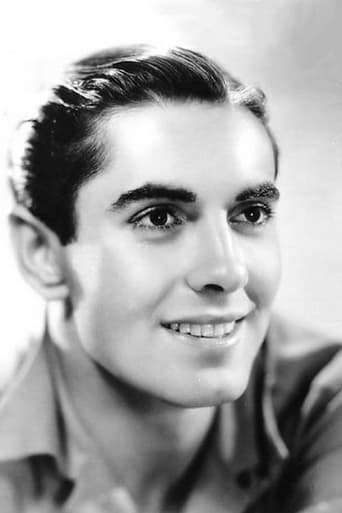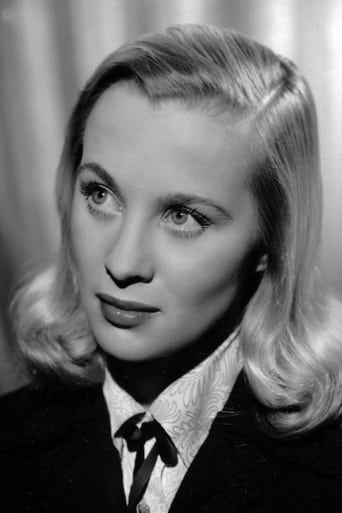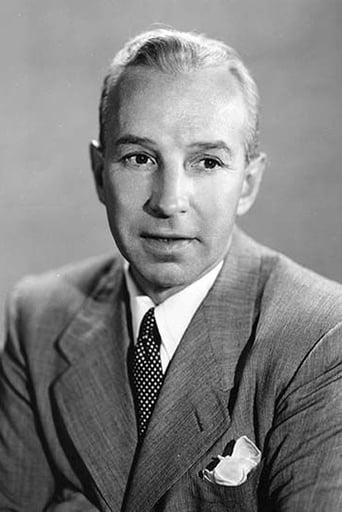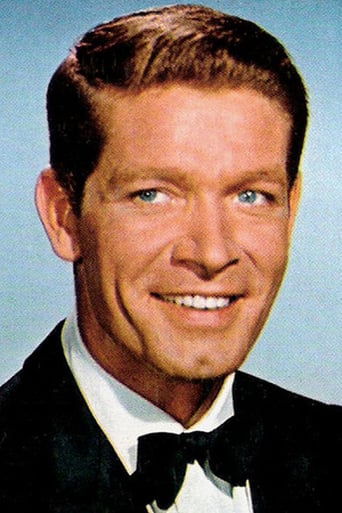Protraph
Lack of good storyline.
Beanbioca
As Good As It Gets
TrueHello
Fun premise, good actors, bad writing. This film seemed to have potential at the beginning but it quickly devolves into a trite action film. Ultimately it's very boring.
Scarlet
The film never slows down or bores, plunging from one harrowing sequence to the next.
clanciai
A luxury cruiser hits a drifting mine in a most unlucky manner - the mine doesn't explode at once but goes off right under the keel and instantly sinks ther cruiser in seven minutes with more than 1100 passengers - only 37 survive, and alone in the South Atlantic without any S.O.S. having been sent, there will be casualties among them as well, especially when the wind starts blowing and the seas start roaring with thunder and lightning and torrential rains.The problem is there is only one boat, and those 27 that found it and cling to it are too many, since it was made for nine. Fortunately there is Tyrone Power to take the lead, assisted by Mai Zetterling as a nurse and the stalwart Moira Lister, who both support him, even when all the others turn their back on him. There are quarrels and fights, there are hysterics and terrible pains from wounds and damages, but the real crisis set in when Tyrone Power as responsible for all their lives has to decide which to sort out when it becomes evident that they will all go down if there is not some culling.The dilemma is terrible and turns the ordeal into a nightmare, especially when the storm sets in. This is not a pleasant film but rather extremely unpleasant, but it is a terrific drama which really puts your conscience to the test. Who could possibly make right decisions in such a situation? As it is, Tyrone Power lives up the responsibility while all the others wash their hands. Which is better? As a story and drama realized on the screen it's a strong experience which will last in your mind. It is made very real and is a real conscience test for anyone who is willing to go through with it. All acting parts are superb.
Andy (film-critic)
From the opening scenes, director Richard Sale makes you aware that this is not going to be a "pretty" film. With the small shot of a simple sea mine floating in the water transforming into a classic 1950s explosion with horrific screams of passengers, Sale again reminds you that this is not going to be a typical Hollywood disaster film. As a reviewer, I must remind those reading that this is not a pretty picture – do not expect your typical film where the heroine always makes good decisions and those that are made do not impact the lives of others. "Seven Waves Away" was a flawless film. It is one of those rare, extremely rare gems that has gone out of print, probably forgotten by most, but when found will provide the most gut-wrenching 97 minutes of cinematic viewing. The plot is simple – a luxury liner is destroyed by a random mine, those surviving are cramped into a lifeboat only equipped to handle 12, 14 at the most, but the dilemma, there are 27 surviving passengers. Weight, rations, sanity, and control are all factors that our leader, Tyrone Powers, must struggle with to save as many lives as possible. With no land for the next 1200 miles, Powers must remain in control, even with death knocking at every door."Seven Waves Away" now ranks among one of my favorite films of all times. Why? Director Richard Sale does a phenomenal job directing a strong cast in such a small space. He creates a sense of claustrophobia that is unprecedented in the film industry. This film is the chapter missing from the over-budgeted disaster film "Titanic", which happily everyone shows up safe near the end. This is the human element of disaster, the choices that are made, and the difficulty of survival. This couldn't have happened without those playing their respective roles. Tyrone Powers was more than impressive as the designated master-in-command of this little boat full of scared people. When we first met him, as he assisted in others floating away from the wreckage, we can see that he is going to be a force in this film, and it isn't until he is pushed that we see the full potential of his character. He pushed himself away from any swashbuckling stereotypes that he was better known for, allowed water to be pushed into his face, and gave us a rugged performance that hasn't been seen for a very long time. It was due to Powers' portrayal that the others fell into their own characters as well. Others have argued that each character seemed cliché and at times racist, but to me, they all worked and fell into their roles respectively. The only one I had trouble believing was Mai Zetterling's portrayal of Powers' love interest and nurse. She was cardboard with lines, but worked with the others around her. She was tolerable because the actual story was powerfully near to perfection.With the characters in place, a strong lead that obviously could control the darkening waters, all we needed to ensure was that there was a strong enough story to accompany these deserved moments. Thankfully, there was. "Seven Waves Away" was one of the tightest scripts that I have witnessed in a very long time. The camera shots were tight, the special effects were 50s style, but perfection in every direction, and the bleak tones were what kept me on the edge of my seat each minute of this film. There is something about a film, especially one made in the 50s that shows unfortunate people just floating out to their death. There is also something about the power of a film that isn't afraid to be honest to itself. "Seven Waves Away" was honest; the horrid nature of Powers saying "women and children don't mean anything anymore" had my heart racing. He was powerful, yet torn all at the same time. He carried a burden none of us would probably be willing to do, and oddly, he was hurt for it. The ending of this film is really what pulled it together for me. The excitement of the crew turned to a wicked shade of turnip at the first signs of possible safety. The honesty of this film is what struck the chord with me. It was powerful and real all at the same time. There wasn't time for cheap CGI or pathetic special effects, this was a human driven film, and it worked because they were all characters we either believed in or have once known. Which would you have been if you were in this boat – one of the strong or one of the weak? This is a conversation that I could have with anyone after viewing this film, and it is conversation that launches this film into my immediate favorites.Overall, I don't think my words gave this film credit at all. It was, again, one of those rare films that should never go out of print, but remain a staple in our cinematic community. Tyrone Powers is superb, and Richard Sale gives us a story nearly worthy enough of Hitchcock. I still get goose bumps as I think about Powers making the final decision on those that are considered "dead weight". This film carried a heavy theme and wasn't afraid to show it to the world. It is a real film about honest events and the truth behind humanity, it speaks further truth now, and would make for a great re-interpretation if not Hollywood-ized too much. I cannot suggest this film enough. If ever you find yourself with a bit more money in the wallet, this film is the perfect investment for your collection. A beauty from beginning to end.Grade: ***** out of *****
shneur
I don't feel that I MUST praise this film just because it's fifty years old and stars Tyrone Power. I just didn't think it was very good. Yes, Power is the leader who "has greatness thrust upon him" and rises to the occasion of making terribly difficult moral decisions for himself and others. But as that struggle is in fact the very essence of the story, which otherwise takes place entirely in a small boat in the middle of the ocean, I think we're entitled to some real drama in its unfolding, however the writers and director might choose to communicate it. Watching Tyrone Power just grit his teeth and forge ahead may have been very sexy to a certain audience, but it was highly unsatisfactory at least to this viewer. The highlight of the film was the supporting cast's performance: several ancillary characters were developed far more than that of the protagonist.
theowinthrop
In 1946 Tyrone Power managed to start convincing his friend and producer, Darryl Zanuck, to occasionally let him flex his muscles as a straight, serious actor. Zanuck reluctantly agreed, so that Power did THE RAZOR'S EDGE and (more important) NIGHTMARE ALLEY. In the former he struggled to show a man who sought and found spiritual piece in the years following World War I, while his friends went mad in the materialistic hopelessness of Europe and America. In the latter he showed he could play a really nasty, opportunistic heel. But neither film was a blockbuster for Power (THE RAZOR'S EDGE did help push the career of his co-star Clifton Webb). NIGHTMARE ALLEY was a critical success, but a flop at the box office. Zanuck returned Power to his old heroic films, aged a little because he was growing older. As a partial sop his characters had less pleasant sides - his character in PRINCE OF FOXES is a willing tool of Cesare Borgia (Orson Welles) for the first half of the movie. But Power remained the good guy hero.In the 1950s (after his contract with Fox was completed) Power made more varied films, that showcased the good actor he had become. In particular his tragic biography THE EDDIE DUCHIN STORY, his interesting western RAWHIDE, his shifty defendant in WITNESS FOR THE PROSECUTION, his physically damaged (and emotionally wounded) hero in THE SUN ALSO RISES, and this film, ABANDON SHIP/SEVEN WAVES AWAY. The story is reset in modern times. It is the story of the sinking, in 1841, of the William Brown - the same shipwreck that is the subject of Henry Hathaway's movie SOULS AT SEA (1937) that starred Gary Cooper, George Raft, and Henry Wilcoxen. Basically the situation is this: you are in the sole floating lifeboat from a ship that has sunk. There are fifty people clinging to it or inside it. But the frail boat can only be assured of floating with twenty or so passengers in it. So, as the surviving officer in the boat you have to decide who shall live and who shall die. Cooper had to make that choice in SOULS AT SEA, and faces trial for murder as a result. Power does the same thing here too - with similar results.But the handling of the William Brown tragedy in SOULS AT SEA was the conclusion of that film: The situation and it's resolution took all of ten minutes of the total movie. In ABANDON SHIP, Power is in this dreadful moral dilemma for the entire film. The Captain (Lloyd Nolan) dies early on. Power has to pick and choose among all these few survivors as to who should be kept and who is expendable (based on age, physical condition, value to society). He is unable to rely on anyone else - a fact that is brought to his attention not only by the actions of a critical Stephen Boyd at one point, but by the way Mai Zetterling and James Hayter distance themselves from him when the lifeboat is finally picked up. All powerful in his unwanted element while everyone's lives depended on him, he is all alone when the dangers for the survivors pass away.ABANDON SHIP is a hard film to sit through as it is so bleak - it is the bleakest movie that Powell ever made (even THE EDDIE DUCHIN STORY had an element of hope in it because Eddie's son Peter was there to carry on the family's name and reputation). But it is an example of good acting all around with a thoughtful script. And it demonstrates that Tyrone Power was a mighty dramatic performer when he was given the right material.





